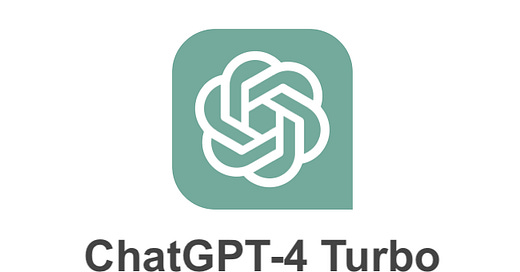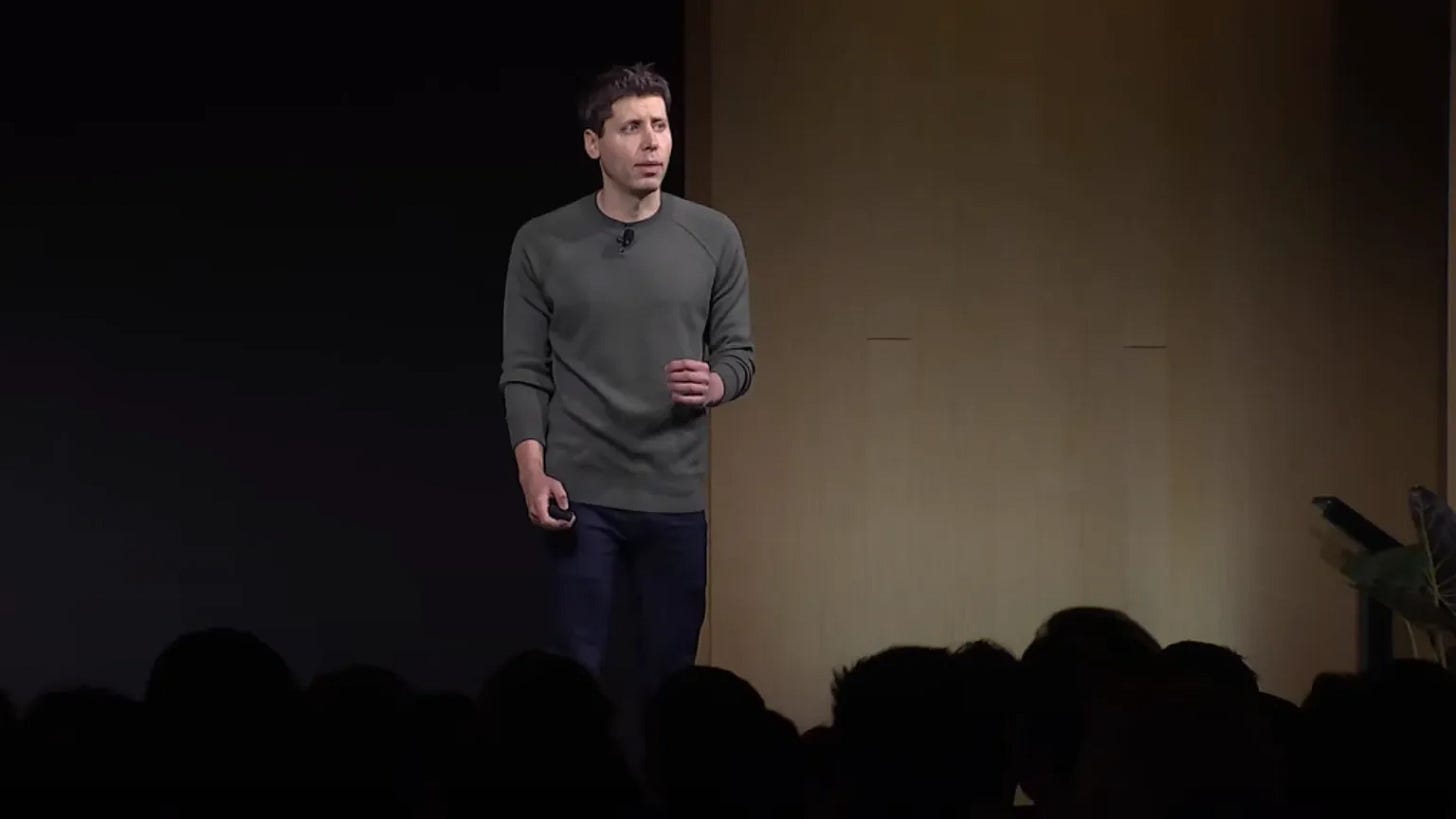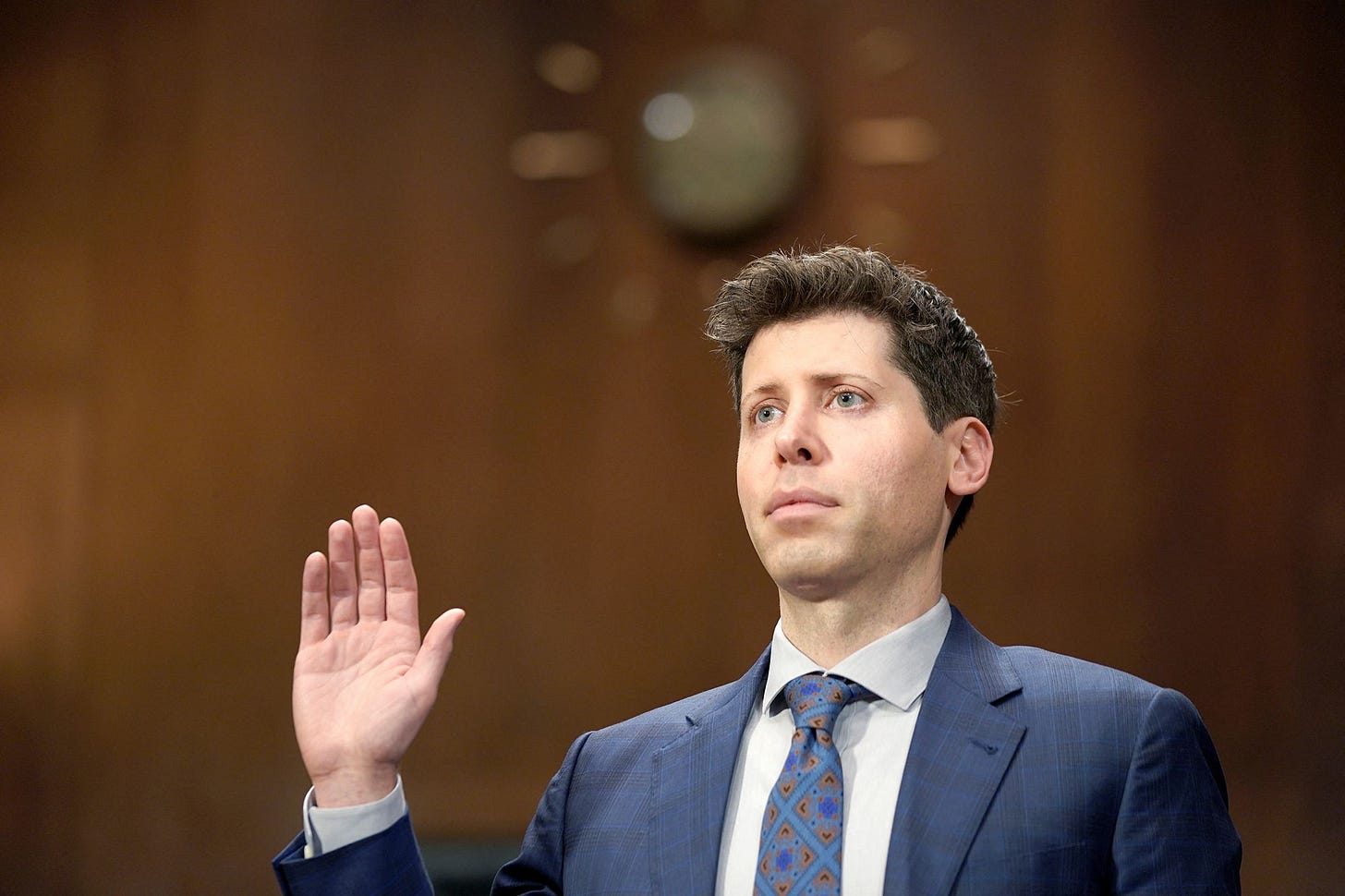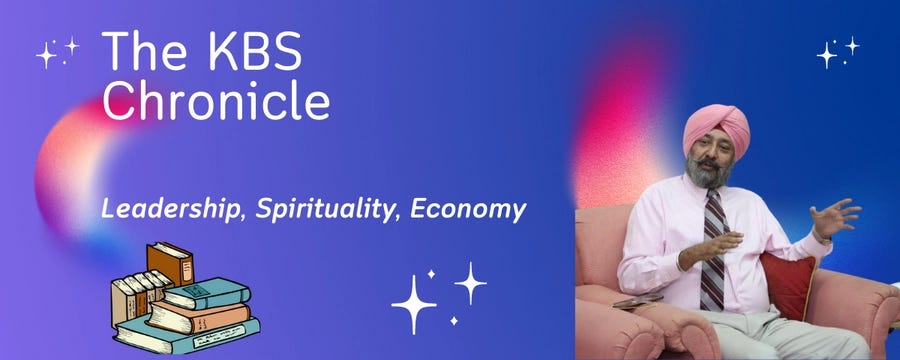Happy Birthday to a 1-Year-Old Prodigy
The Emergence of Aladdin's Digital Genie
As ChatGPT marks its first anniversary, it emerges as a shining example of human creativity and innovation, akin to Aladdin unleashing a genie from a lamp - a genie eager to comply with your every command. Launched on November 30, 2022, ChatGPT has not just captivated but utterly enthralled and simultaneously disconcerted the world. Its presence is like the release of a digital genie, boasting endless knowledge and the ability to mimic human conversation with a surreal, almost haunting accuracy.
Transforming a World of Work and Creativity
The advent of ChatGPT has ignited widespread curiosity and excitement about its capacity to revolutionize various domains. It's not just about altering the way we work and interact but also about rejuvenating the creative arts. Its influence is perceived as being profoundly transformative. Advocates like Jeffrey Katzenberg, former Chairperson of Walt Disney Studios, emphasize its ability to disrupt conventional cost frameworks, envisioning a future where artificial intelligence augments creativity. This synergy could lead to significant economic and efficiency advancements, including the possibility of reducing the production costs of animated movies by up to 90%. This scenario paints a picture of a world where creative processes are significantly more accessible and cost-effective, potentially democratizing areas of the arts and technology that were previously limited by high expenses.
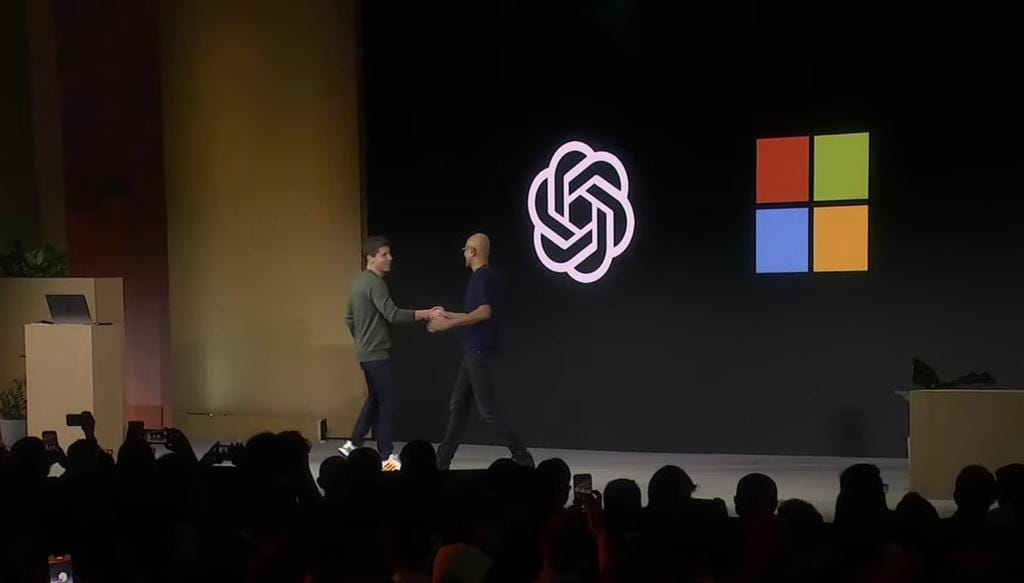
Navigating the AI Labyrinth: Opportunities and Perils
The meteoric rise of ChatGPT has been fraught with numerous challenges and debates. Across the globe, governments and regulatory bodies are rapidly moving to understand and manage this swiftly evolving technology, amidst growing concerns about its potential misuse and unexpected consequences. Influential voices like Elon Musk and Sam Altman have raised alarms about AI's potential to disrupt job markets and pose existential risks. These concerns have highlighted the critical need for nuanced and thoughtful regulation in the AI arena, stressing the importance of balancing the extraordinary opportunities AI presents with the significant perils it may bring.
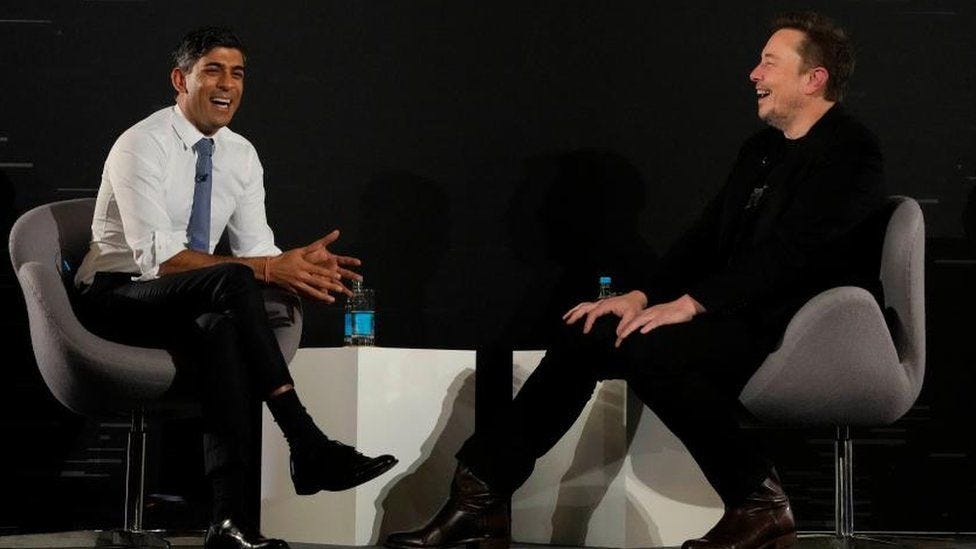
Global Response to AI: Executive Actions and International Summits
In a notable response to the challenges posed by AI, President Biden issued a comprehensive Executive Order on AI on October 31. This order, which came about following a voluntary commitment from the top 15 U.S. tech giants, coordinated by the White House, marks a significant step in the United States' approach to AI governance. Just days later, an international movement towards AI regulation was further solidified at the UK International AI Summit in Bletchley. Hosted by Prime Minister Rishi Sunak, this summit saw 28 nations come together to sign an AI pact. These back-to-back events underscore the global urgency and concerted effort to address the complexities of AI governance, recognizing the need for an international framework to manage the profound implications of this rapidly advancing technology.
A Year of Unprecedented Growth and Real-World Impact
Within just a year, ChatGPT has become a phenomenon, marking its territory as the fastest-growing application in history. Its influence has extended beyond digital realms, affecting global industries, sparking debates in creative circles, and even causing ripples in the financial markets. The AI's footprint has also raised environmental concerns, particularly regarding the resources needed for its vast data centers.
Academic Excellence of GPT-4: Beyond Expectations
Surpassing GPT-4, the latest iteration, ChatGPT4-Turbo, launched recently in beta, has demonstrated even more remarkable capabilities. This advanced version has outshined both GPT-3.5 and the original ChatGPT4 in various academic and professional arenas. Exhibiting prowess from excelling in legal exams to showcasing expertise in sommelier tests, the depth of knowledge and analytical abilities of ChatGPT4-Turbo have elevated the standards of AI performance to new heights.
Its “Dramatic” Failures
Despite the hype surrounding artificial intelligence (AI), AI chatbots are not as intelligent as they seem. In fact, they have a nasty habit of making things up. Known in the industry as "hallucinations," these fabricated answers can be extremely damaging because the AI system does not provide any indication that it is lying. A recent study by a startup founded by ex-Googlers found that ChatGPT fabricates answers far more often than we realized: at least 3% of the time, and up to 27% of the time. In the past year, numerous examples of these hallucinations have made headlines.
Prescient or Hallucinations
In April, a UCLA professor asked ChatGPT to provide five examples of college professors who had been accused of sexual harassment. ChatGPT responded with a fabricated list of names, including that of GW professor Jonathan Turley. ChatGPT even referenced a Washington Post article that did not exist, although WaPo subsequently wrote a real follow-up article that vindicated Turley. In another instance, Google's chatbot Bard made false claims about the James Webb Space Telescope in its debut, causing Alphabet to lose $100 billion in market value. Microsoft's AI-powered Bing search engine has also been caught offering blatantly wrong information on various topics.
In a legal case, a lawyer who used ChatGPT to write a legal brief was forced to ask for leniency after it was discovered that the chatbot cited at least six cases that did not exist. ChatGPT also falsely reported that a mayor in Australia was imprisoned for bribery when he was actually a whistleblower and never charged with a crime.
These are just a few examples of the many AI hallucinations that have been documented. While AI has the potential to revolutionize many aspects of our lives, it is important to remember that it is still a technology in its early stages of development. As such, we need to be aware of its limitations and use it with caution.

My Personal Experience: Importance of Due Diligence in Using AI-Generated Content
I once sought assistance from ChatGPT for an article on the verses of Baba Sheikh Farid in the Sri Guru Granth Sahib (SGGS). The tool provided two beautiful verses in Gurmukhi, along with English transliteration and translation, which seemed to perfectly encapsulate his philosophy, also citing the specific Angs of SGGS. I included these in my draft article intended for "Salahiyat", a trilingual monthly publication from New Delhi, with a readership in India, Pakistan, and beyond. However, my editor, known for his meticulousness, noticed that the verses presented did not actually exist in the SGGS. This timely intervention prevented a major embarrassment and a significant error, while underscoring the necessity for rigorous verification when using AI-generated content, instead of relying on it in a purely mechanical, copy-and-paste manner.
ChatGPT's Fabrications: A Sign of Bigger Problems?
ChatGPT's hallucinations are a symptom of a larger problem in the AI industry: the lack of transparency and accountability. AI systems are often developed in secret, and their algorithms are not publicly available, even though they may claim it to be “open-source”. This makes it difficult to understand how they work and to identify potential biases and even bugs. In addition, AI systems are often trained on massive amounts of data that can be biased or incomplete. This can lead to AI systems that make unfair or inaccurate decisions.
As AI becomes more integrated into our lives, it is important to address these issues of transparency and accountability. We need to develop AI systems that are explainable, fair, and robust. We also need to hold AI developers accountable for the behavior of their systems. The problem of AI hallucinations is a serious one, but it is not insurmountable. By working together, we can develop AI systems that are safe, reliable, and beneficial to all.
A Year of Marvels and Limitations: The ChatGPT Journey
In its inaugural year, ChatGPT has stood out as a prodigy of the digital era, earning both awe and caution in equal measure. Its rapid evolution and far-reaching impact in global discourse are clear indicators of its significant influence. However, it's not without its flaws. Occasional errors, such as giving an incorrect response to a question about its own launch date — a task precisely executed by Perplexity.ai, a rising competitor in the AI landscape — underscore the inherent challenges and limitations even the most advanced AI systems face.
More to Come
This interplay of remarkable capabilities and a few inherent limitations exemplifies the nature of burgeoning technologies. It serves as a reminder that the field of AI is still ripe with possibilities for further exploration and enhanced understanding. As we mark just a single year in the extensive chronicle of human history, our attention remains fixated on this extraordinary innovation, witnessing its ongoing evolution and its ability to redefine our sense of what’s achievable. Early assessments of the recently launched ChatGPT-4 Turbo are overwhelmingly positive, yet it's premature to declare it immune to occasional inaccuracies or 'hallucinations'. Despite these potential hiccups, this one-year-old technological marvel has revolutionized our lives and ways of working in ways previously unimaginable, or as one might say, in ways that surpass even our wildest hallucinations.
Happy Birthday, ChatGPT!

